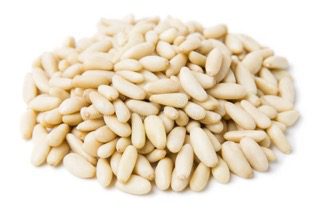

While pine nuts can be a healthy addition to a dog’s diet, they should be given in moderation due to their high fat content. Pine nuts are a good source of phosphorus which promotes healthy cell growth, but overconsumption can cause gastrointestinal upset and even pancreatitis.
Pine nuts contain phosphorus which is essential for healthy cell growth in dogs.
Pine nuts are high in fat and phosphorus which can lead to digestive issues and stomach problems if consumed in excess. Long-term consumption of pine nuts can also lead to the formation of kidney and bladder stones, as well as an increased risk of pancreatitis and obesity.
To avoid the risks associated with overconsumption, pine nuts should be given to dogs in small amounts as an occasional treat. It is important to monitor your dog’s reaction to pine nuts and consult with a veterinarian if you have any concerns.
Pine nuts are a type of nut that can be included in a dog's diet in moderation. They're also known as pignoli nuts and are typically found in Mediterranean cuisine. Pine nuts are high in fat, so they should only be given to dogs as an occasional treat. When fed in moderation, pine nuts provide phosphorus which is essential for healthy cell growth. However, overconsumption can cause gastrointestinal upset and even pancreatitis. In addition, long-term consumption of pine nuts has been linked to the formation of kidney stones and bladder stones, as well as an increased risk of obesity. Pine nuts are affordable and easy to access, and can be chopped and sprinkled on top of your dog's food as a treat. If you're looking for a healthy alternative to pine nuts for your dog, you can try almonds or cashews. Have you ever given pine nuts to your dog? How did they react to them? Remember to always monitor your dog's reaction to new foods and consult with a veterinarian if you have any concerns. Give your furry friend a pat on the head from me!